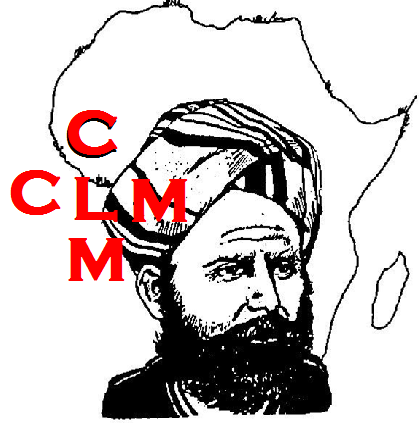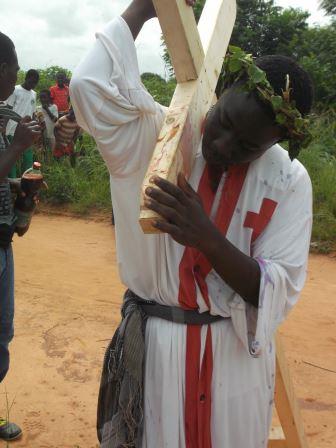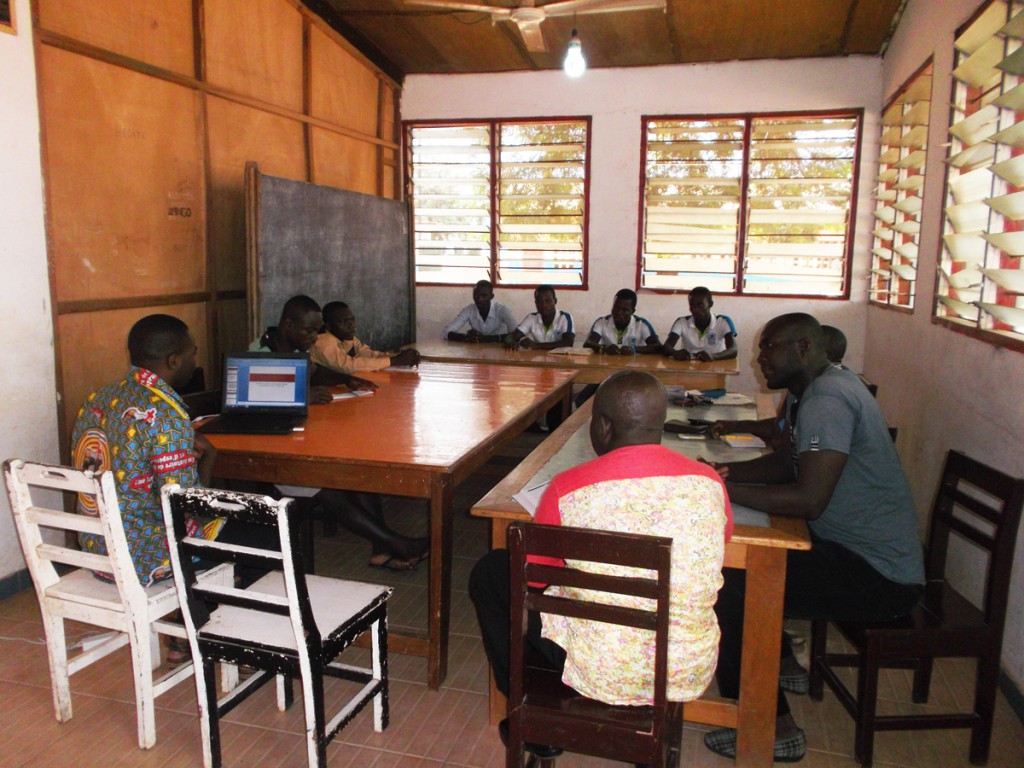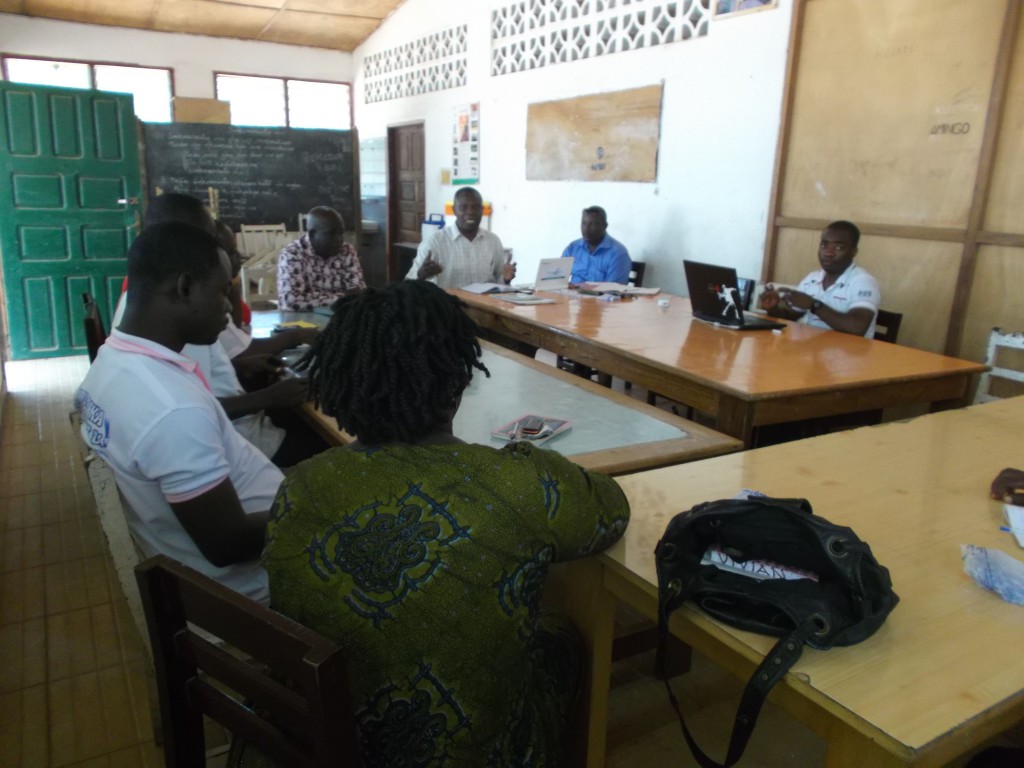
Having meditated upon the relevance of the Social Teaching of the Church at our last meeting, we thought to start realizing the suggestions of the Scholastic Pierre Ngayo. One of his suggestions for us was to be fond with the Social Teaching of the Church. It’s for that matter that, this 8th August, we invited him to share with us about the concern of the Church about the Care for our Common Home which the Pope has shown through the Encyclical “Laudato si”. The Scholastic presented the topic into three parts.
- Overview of the problem of the environment.
In the Encyclical, he started, the Pope is calling the earth our common home, our mother (from the Canticle of Francis of Assisi). The name should arouse in us a relationship of love towards it. Instead, our mother, the earth is crying. We are destroying the earth, over-exploiting the resources. Everybody agrees that the earth is facing a serious degradation which has never occurred. This suffering of the earth is correlated to the suffering of the poor.
- Relation of the environmental degradation and poverty
The current situation of the earth is compared to the poor state of the vulnerable. We do not care for the earth likewise we do not care for the poor. And again, the degradation of the earth is also the degradation of the vulnerable. They are the ones suffering first of all of the overexploitation of the resources. The development, said the Pope, should consider the effect on the earth. It should arouse from a new ecological spirituality.
- The moral implication of the exploitation of resources
The Pope affirmed that the degradation of the earth is not at random. Human beings have then a role to play. A new ecological spirituality is necessary. Creatures are gift from God, and so by, have a certain purpose. They speak about the love of God and we should not prevent them of this. “For human beings,… to destroy the biological diversity of God’s creation, … for human beings to contaminate the earth’s waters, its land, its air, and its life -these are sins.”(L.S. 8) The Pope is calling us to think about the future generation. “The world we have received also belongs to those who will follow us… What kind of world do we want to leave to those who come after us, to children who are now growing up? Leaving an inhabitable planet to future generation is first and foremost, up to us. Leaving debris, desolation and filth… “
The Scholastic left with us again three questions for our meditation.
- How does the issue of environmental degradation affect you and your family?
- How do you know about the relation between the environmental degradation and the issue of poverty?
- How can you contribute, as a Christian, to the improvement of the environment where you leave?
After this briefing about the Encyclical, he presented on a Power Point a concrete example of the negative effect of the plastic rubbers on our health, the farming lands, the danger the plastic rubbers cause to aquatic life and the threaten on birds.
After this theoretical aspect, we resolved to:
- Form local groups: Due to the distance between the members, we feel that forming local groups will be advantageous. They will have time for community prayer and their involvement in the life of the Christian Community close to them.
- JPIC Committee: At the local level again, members should collaborate with the Committee Justice and Peace if it exists. If not, they should try to create it. In some of the parishes, the apparent activity of this Committee is to resolve conflict. We, as CLM aspirants, will arouse the concern for the care of our Common Home and let people know about the Social teaching of the Church.
- Mission Animation: We have decided also to be engaged in the ventilation of the Magazine New People for the awareness upon Mission.
- We have planned few things for the month of October which we will unearth later.
- We formed a Committee of six (6) members to reflect on the creation of An Advanced Vocational School at Abor (IMFH).
- All the members should account of how far they have gone at the coming meeting as far as those decisions are concerned.
After all, we agreed to meet on the 12th September at 9 o’clock at Abor. We prayed and Rev. Fr Rabbiosi blessed us. We had our community meal before we departed from the place.
Justin Nougnui, coordinator.
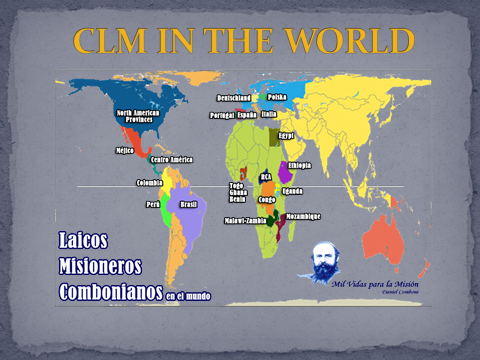 This 14th November, we met at Abor for our formative meeting.
This 14th November, we met at Abor for our formative meeting.



